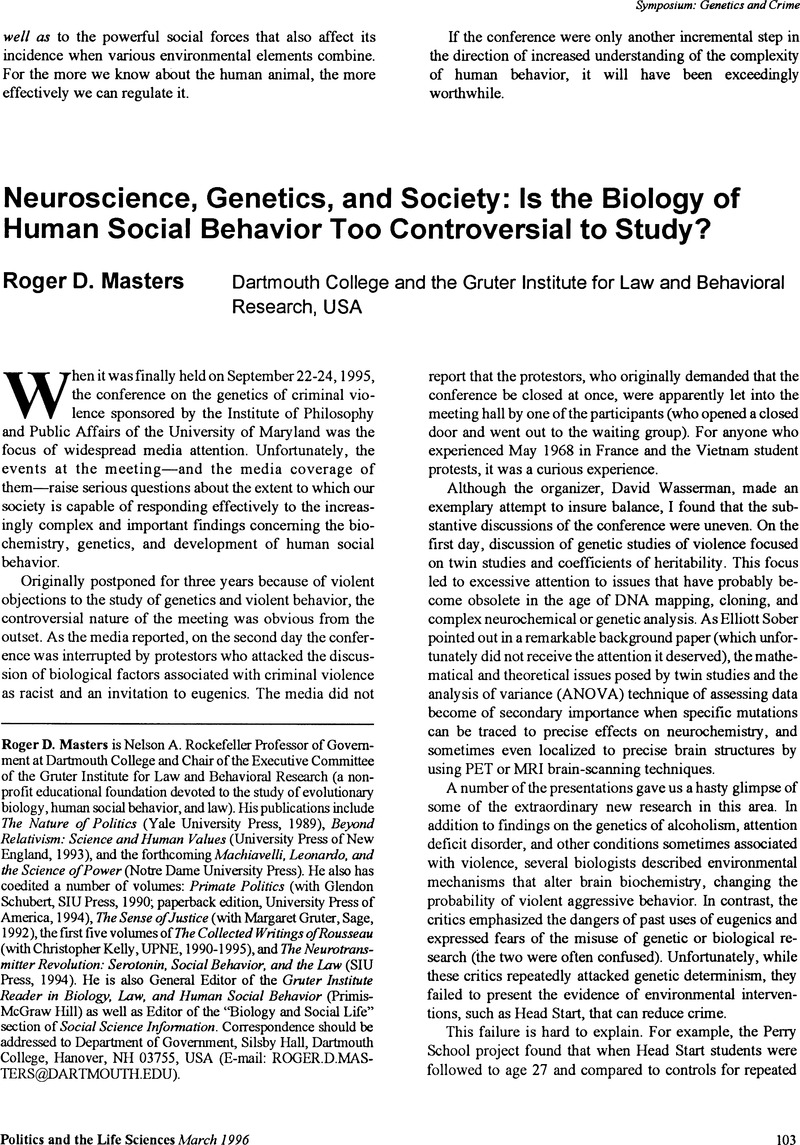Crossref Citations
This article has been cited by the following publications. This list is generated based on data provided by Crossref.
Needleman, Herbert
2009.
Low Level Lead Exposure: History and Discovery.
Annals of Epidemiology,
Vol. 19,
Issue. 4,
p.
235.
Panofsky, Aaron
2018.
Rethinking scientific authority: Behavior genetics and race controversies.
American Journal of Cultural Sociology,
Vol. 6,
Issue. 2,
p.
322.



